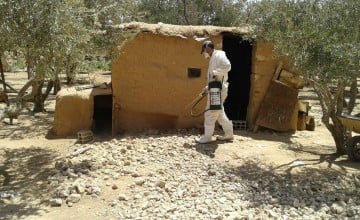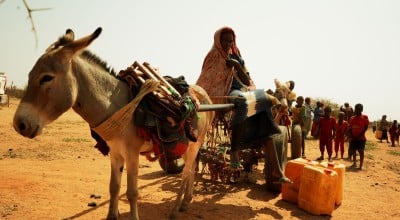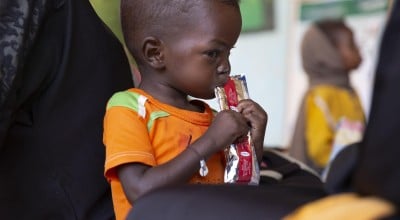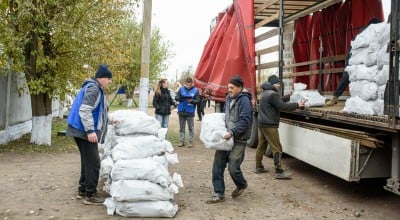
Read our 2024 annual report

Knowledge Hub
International pressure urgently needed to avert mass casualties in Idlib
Concern Worldwide, Ireland’s largest aid agency, which has extensive humanitarian response programmes within Syria and in neighbouring Turkey and Lebanon, is calling for urgent international action to avoid mass casualties and displacement in the city of Idlib.

There are fears of a large scale assault on the densely populated Syrian city, which will cause levels of civilian casualties on an even greater scale than was seen during the battles for Aleppo and Eastern Ghouta.
On Tuesday, the United Nations warned of the “worst humanitarian catastrophe” of this century if the attack goes ahead, since there are now no remaining safe areas to which those fleeing Idlib can be evacuated.
Humanitarian nightmare
The UN Secretary General, António Guterres, said that if a full scale battle took place, it “would unleash a humanitarian nightmare unlike any seen in the blood-soaked Syrian conflict.”
Such an assault would have a particularly devastating impact on the three million civilians, including one million children, who live in Idlib and the surrounding areas.
With more than two million people in need of humanitarian assistance, ensuring the protection of Idlib’s civilian population and their access to essential humanitarian aid must be guaranteed by all parties to the conflict.
Concern’s Regional Director for the Middle East, Brid Kennedy said: “Three out of every four people in Idlib have already been displaced, not once, but multiple times, placing an unbearable physical and psychological toll on the population. Life in Idlib today is characterised by extreme vulnerability and fear. There is nowhere left to run, nowhere left where they can be safe.”
Jan Egeland, Chair of the UN Task Force on Humanitarian Access in Syria, visited Ireland last Friday to speak at Concern’s 50th anniversary conference on conflict. Speaking on RTÉ news after the conference, the seasoned Norwegian diplomat reminded viewers that civilians continue to pay the price as war continues to escalate in Syria. Today, the UN reported that unprecedented levels of internal displacement – not seen throughout the seven-year conflict – took place in Syria in the last six months.
Concern’s Chief Executive, Dominic MacSorley, called on all parties to the conflict to respect international law and to allow aid agencies sustained unimpeded access to affected populations.
MacSorley said we must remind ourselves that there is a collective global obligation to ensure the protection of civilians in Idlib and to redouble efforts to find a diplomatic solution to the conflict.
Unspeakable suffering
He said: “The conflict in Syria has already caused unspeakable suffering to millions of people and forced millions to live under siege or to leave their home and their country. A full-scale military offensive in Idlib would put at risk the lives of almost three million civilians, including one million children, living in the region.”
Urging for immediate and robust diplomatic efforts that strengthen the work of Staffan de Mistura, the UN Special Envoy in the region, MacSorley called for stronger collective pressure from the EU and other powerful UN member states, adding: “Much more can and must be done now. We simply cannot stand back and watch the further destruction of civilian lives nightly on our TV screens.”
MacSorley’s call follows last week’s ‘Resurge’ conference, organised by Concern as the agency marked 50 years of operations. The conference was focused on responding to the humanitarian impact of conflict today and efforts to resolve or prevent wars internationally and at the community level.

Other ways to help
Corporate support
Is your company interested in working together for a common cause?
Fundraise for Concern
From mountain trekking to marathon running, cake sales to table quizzes, there are lots of ways you can support our work.
Buy a gift
With an extensive range of alternative gifts, we have something to suit everybody.
Leave a gift in your will
Leave the world a better place with a life-changing legacy.
Volunteer with Concern
The lots of ways to get involved with our work as a volunteer
School fundraising
Without the generous support from schools, we wouldn't be able to do the work that we do.




